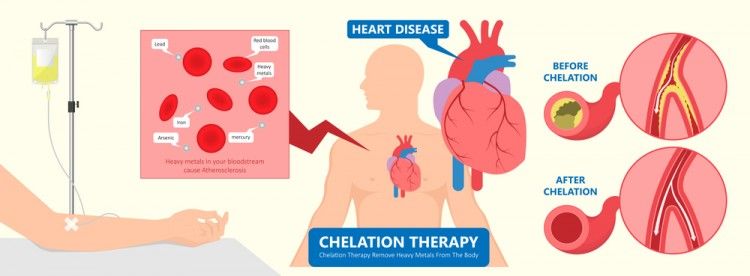Bypass surgery, also known as coronary artery bypass graft (CABG) or heart bypass surgery, is a medical procedure used to clear blockages and improve blood flow to the heart. The surgery is performed on patients whose arteries are severely blocked or damaged. Blocked or damaged arteries restrict the flow of oxygenated blood to the heart, thereby causing the heart to stop functioning correctly, resulting in heart failure.
Alternative Treatments for Bypass Surgery in India
There are several other treatments that clear blockages in the arteries, equally well. Patients with blocked and narrowed arteries may consider going in for an alternative treatment, instead of bypass surgery. The past decade or so has seen numerous patients opting for an alternative treatment for bypass surgery. Here is a little brief on some alternative bypass treatments to help you keep abreast with what is new in the medical world.
1. Balloon Angioplasty
Balloon angioplasty is one of the most popular tried and tested, alternative treatments for bypass surgery that most doctors are likely to suggest to their patients. The medical procedure is a low cost, less invasive, and low risk. It is an effective treatment for clearing arteries blocked by plaque deposits.
During the treatment, a catheter, which is a narrow, pliable tube, with a small balloon fixed to one end is inserted into the artery of the leg. The doctor gently maneuvers the catheter under X-ray control to the narrowed and blocked coronary artery. The balloon is then used to inflate the catheter. This procedure automatically expands the affected section of the artery and lets blood flow through unhindered. Following the process, the balloon is deflated and the catheter removed.
Doctors may choose to insert a thin, small, metal or plastic tube, called a stent, into the artery, to prevent the passageway from contracting and closing. Balloon angioplasty has a high success rate, and the procedure can be safely repeated in case the artery becomes blocked again.
The benefits of Balloon Angioplasty
- The procedure is quick and carried out under local anesthesia.
- Most patients do not require general anesthesia or prolonged hospital stay. They generally require overnight admission to the hospital.
- It is a non-invasive procedure, so no surgical incision is required—the doctor makes just a tiny cut in the flesh that heals without sutures.
- Patients can return to their everyday routines within a reasonably short time.
2. Enhanced external counterpulsation (EECP)
Enhanced external counterpulsation (EECP) is yet another alternative treatment for bypass surgery. The alternative treatment is a quick, outpatient procedure that does not require hospitalisation. Numerous studies show EECP to be an effective substitute for bypass surgery.
The procedure has been approved by the Food and Drug Administration (FDA), a federal body of the Dept. of Health and Human Services of the United States. The procedure is recommended for use on patients suffering from congestive heart failure (CHF).
How is the EECP performed?
The procedure entails compression of blood vessels located in the lower limbs. The compression of blood vessels encourages the blood flow to the heart to improve. The EECP procedure causes more blood to flow into the heart, with each heartbeat. Gradually, with time, a few blood vessels may expand and develop extra ‘shoots’, which will allow free flow of blood to the heart, turning into somewhat ‘natural bypass’. To be effective, EECP has to be carried out every day, for at least, one to two hours, for seven weeks straight.
3. Chelation Therapy
Chelation Therapy for heart block or heart-related diseases involves a chemical procedure wherein ethylenediaminetetraacetic acid (EDTA), a synthetic compound, is administered into the patient’s bloodstream. The process is approved by the FDA and is primarily used for the removal of minerals and heavy metals, such as mercury, lead, iron, copper, aluminum, calcium, and arsenic, from the system.
However, of late, some medical professionals swear by this therapy for the treatment of coronary artery disease and atherosclerosis. It is seen as an alternative treatment to bypass surgery, even though scientific evidence in its support is insufficient.
How does Chelation Therapy replace Bypass Surgery?
Chelation Therapy is in a nascent stage and lacks scientific verification. Even so, a few medical professionals think it to be a suitable remedy for clearing artery blockages. They believe that the chemical substance used in the therapy binds with calcium deposits, which makes up the plaque, that blocks the arteries and prevents the free flow of blood to the heart and removes it—thereby clearing the blockage.
Some medical professionals believe that the chemical EDTA possesses potent antioxidant properties. And it removes metals that bind with low-density lipoprotein (LDL) cholesterol which causes the most damage to the arteries. The hypothesis is that when heavy metals are removed from the arteries, it can stop the progression of the disease such as atherosclerosis. Though studies have shown this to be correct, there is the fear of the chemical compound also leaching calcium from bones, tissues and muscle mass. Studies on the use of EDTA have not shown consistent results, so it remains a controversial therapy for blocked arteries.

